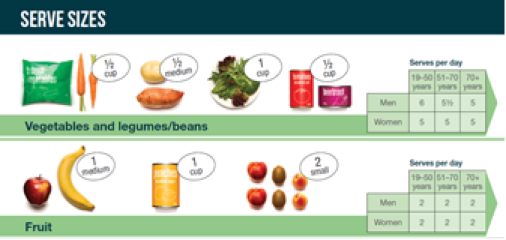What Should I Be Eating Leading Up To My Surgery?
Good nutrition is important for health. It is very important in the time leading up to your surgery. Your body is in its best state to deal with the stress of surgery when you eat a healthy, balanced diet. It may also help with a faster recovery process.
Poor nutrition can lead to poor outcomes after surgery. Patients who do not eat well are more likely to have problems after surgery. Your wounds may take longer to heal; you may get infections and have a longer stay in hospital.
What Does a Healthy Diet Look Like?
Eating from the 5 food groups is important to ensure your body gets all the nutrients it needs. This includes protein, vitamins and minerals.
It is best to be eating a wide variety of healthy foods. It is also important to drink plenty of water and avoid drinking too much alcohol. More than 2 alcoholic drinks a day can increase your risks.
Older people should eat nutritious foods and keep physically active to help maintain muscle strength.
Staying in a healthy weight range is also important. Speak with your local doctor about seeing a dietitian if you are concerned about your weight. Being overweight increases the chance of diabetes. Diabetes can cause difficulties before, during and after surgery. Have you talked to your local doctor about your risk?
What if I'm having trouble eating?
Poor food intake can lead to problems after surgery. Your wounds may take longer to heal; you may get infections and have a longer stay in hospital.
If you are having difficulty eating due to a poor appetite, or have recently lost weight without trying, please let your local doctor or nurse know. A visit with a dietitian might help you. If you are underweight, increasing both protein and total energy (kilojoules or calories) may help you gain weight.
Please note - if you have been advised to follow a specialised diet by your doctor or dietitian please continue as per their advice.
Protein and Energy in food:
Protein is used for growth and repair of body tissues and muscles. To increase protein and energy and help your recovery, try the following:
- Include protein foods as part of every meal and snack
- Eat three (3) meals and three (3) nourishing snacks each day
- If your appetite is poor; serve meals on small plates
- Eat with family and friends or in pleasant surroundings
- If you are not hungry at meal times try to have a nourishing milk drink or dairy dessert. Not eating may make you feel sick in the stomach
- Avoid filling up on low calorie foods such as tea, coffee, water, vegetable juices, diet drinks and clear soups
It is important to keep up healthy food and drinks after surgery to help your wound to heal.
See Also
What should I be eating?

Image used with permission from National Health and Medical Research Council
What other people found useful

